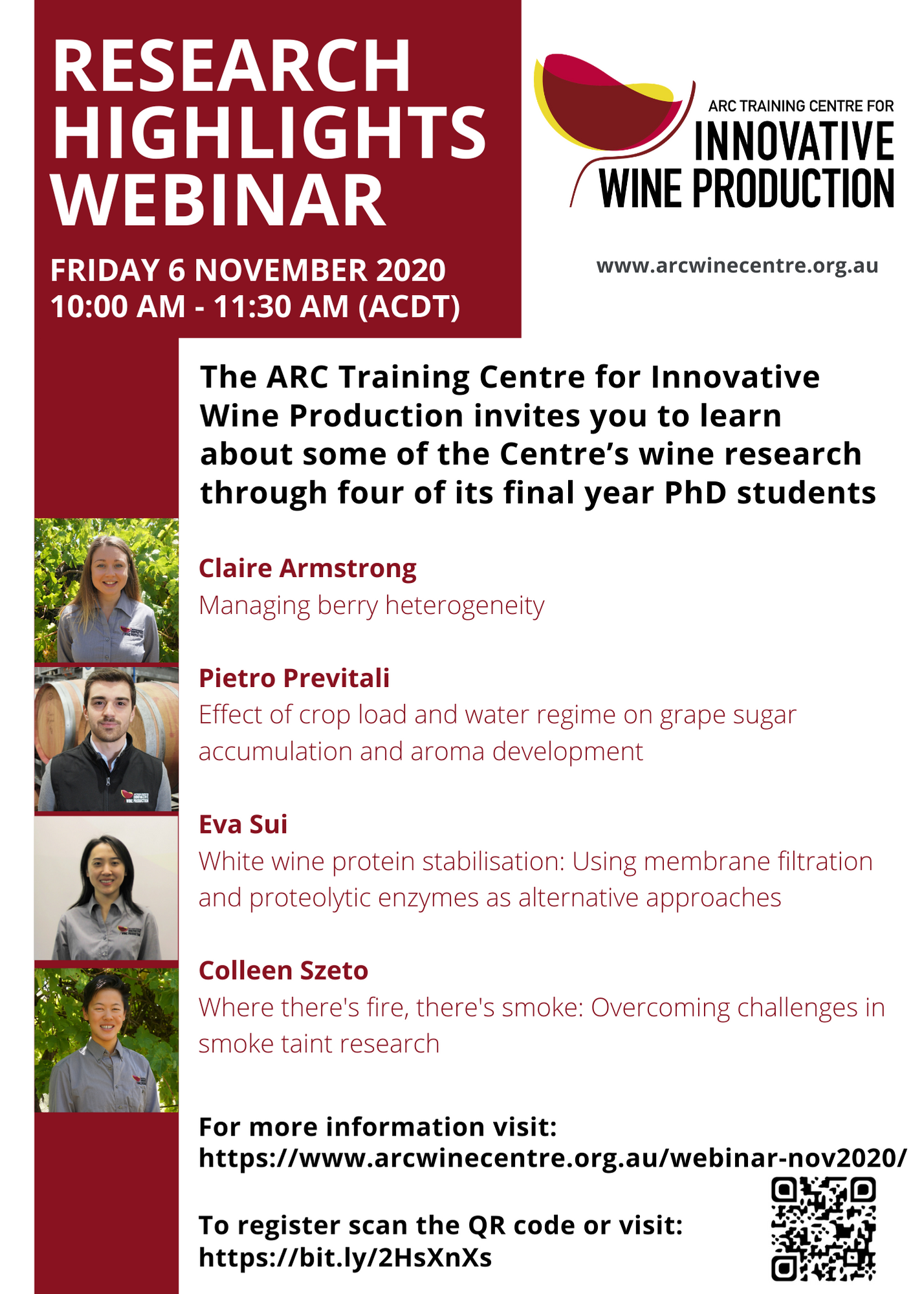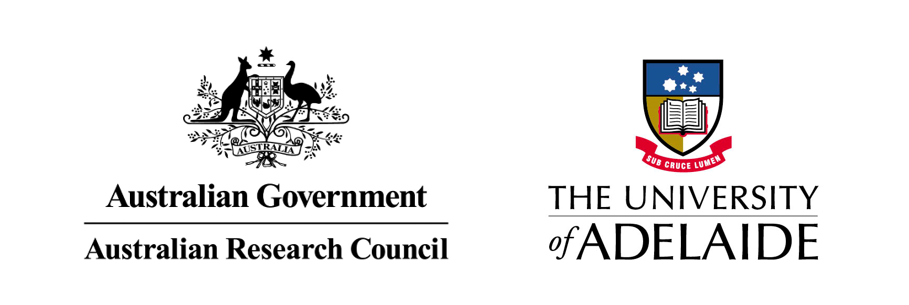Friday 6 Nov 2020, 10:00 am – 11:30 am (ACDT)
Free online webinar, all welcome
The ARC Training Centre for Innovative Wine Production invites you to learn about some of the Centre’s wine research through four of its final year PhD students. Hear about managing berry heterogeneity, getting the right balance of grape sugars and aromas, managing wine protein haze and measuring smoke taint in wine.
The Centre was funded in 2017 to tackle new and age-old challenges to wine production through innovative, multi-disciplinary research. Projects span the grape to wine spectrum and fall into two broad themes: Responding to Challenges and Increasing Profitability.
In addition to the Centre’s industry focussed research, it is tasked with providing research training excellence to PhD research students and postdoctoral researchers who will be equipped to make positive contributions to the wine industry now and in to the future.
Join us to hear more from our researchers on the following topics;
Claire Armstrong – Managing berry heterogeneity
Pietro Previtali – Effect of crop load and water regime on grape sugar accumulation and aroma development
Eva Sui – White wine protein stabilisation: Using membrane filtration and proteolytic enzymes as alternative approaches
Colleen Szeto – Where there’s fire, there’s smoke: Overcoming challenges in smoke taint research
Speaker Profiles
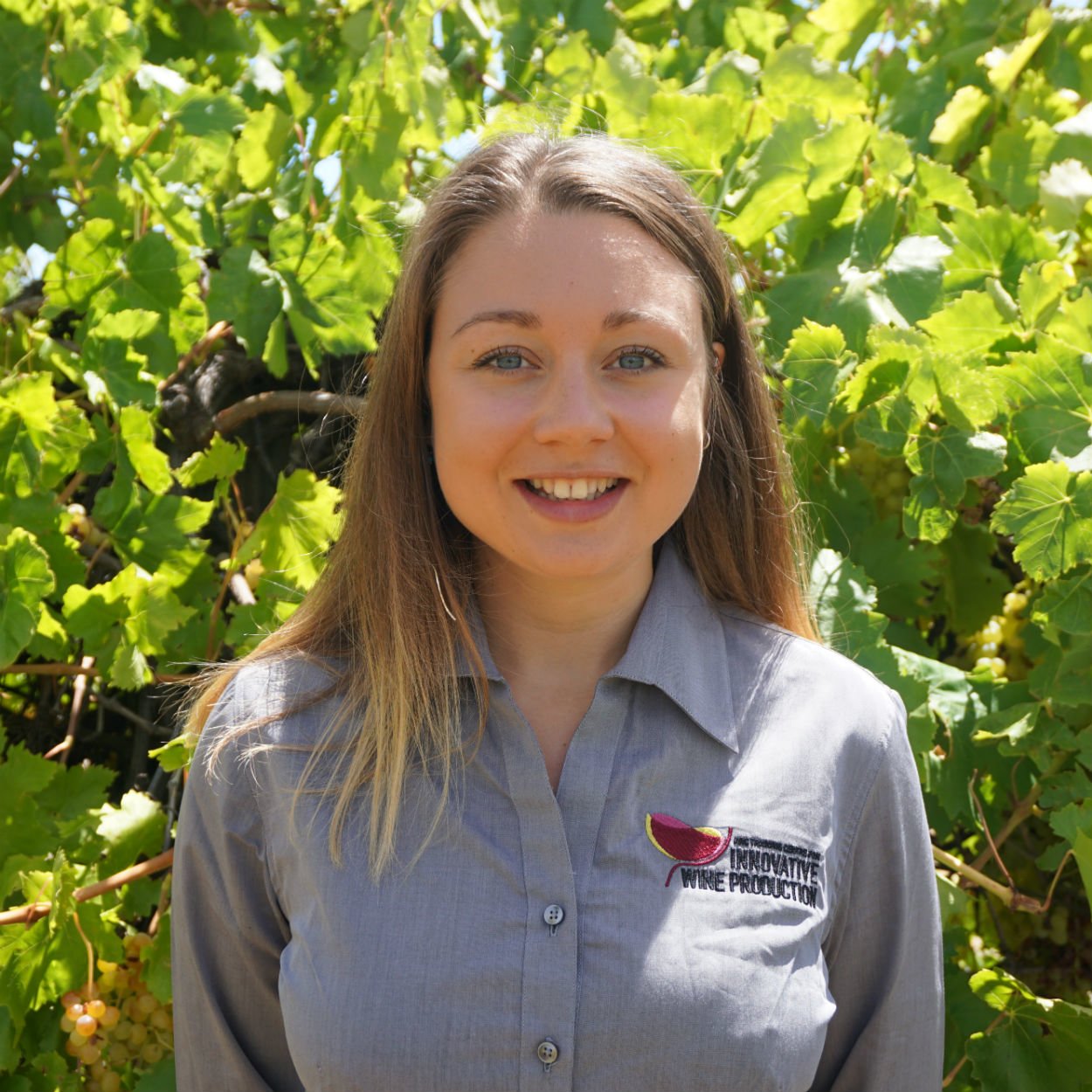 Claire Armstrong graduated in 2018 with an Honours degree in Chemistry from the University of Glasgow, Scotland. She is in the third year of her PhD in Wine Science at the University of Adelaide and due to finish in early 2022. As part of the Centre, Claire’s project has been focusing on understanding and managing grape heterogeneity and has involved fieldwork, small-lot winemaking, sensory analysis, chemical analysis and chemometrics. So far, Claire has a manuscript accepted in the Australian Journal of Grape and Wine Research titled ‘Effect of grape heterogeneity on wine chemical composition and sensory attributes for Vitis vinifera cv. Cabernet Sauvignon’ and will be presenting some of her work at the upcoming virtual XIIIth International Terroir Congress.
Claire Armstrong graduated in 2018 with an Honours degree in Chemistry from the University of Glasgow, Scotland. She is in the third year of her PhD in Wine Science at the University of Adelaide and due to finish in early 2022. As part of the Centre, Claire’s project has been focusing on understanding and managing grape heterogeneity and has involved fieldwork, small-lot winemaking, sensory analysis, chemical analysis and chemometrics. So far, Claire has a manuscript accepted in the Australian Journal of Grape and Wine Research titled ‘Effect of grape heterogeneity on wine chemical composition and sensory attributes for Vitis vinifera cv. Cabernet Sauvignon’ and will be presenting some of her work at the upcoming virtual XIIIth International Terroir Congress.
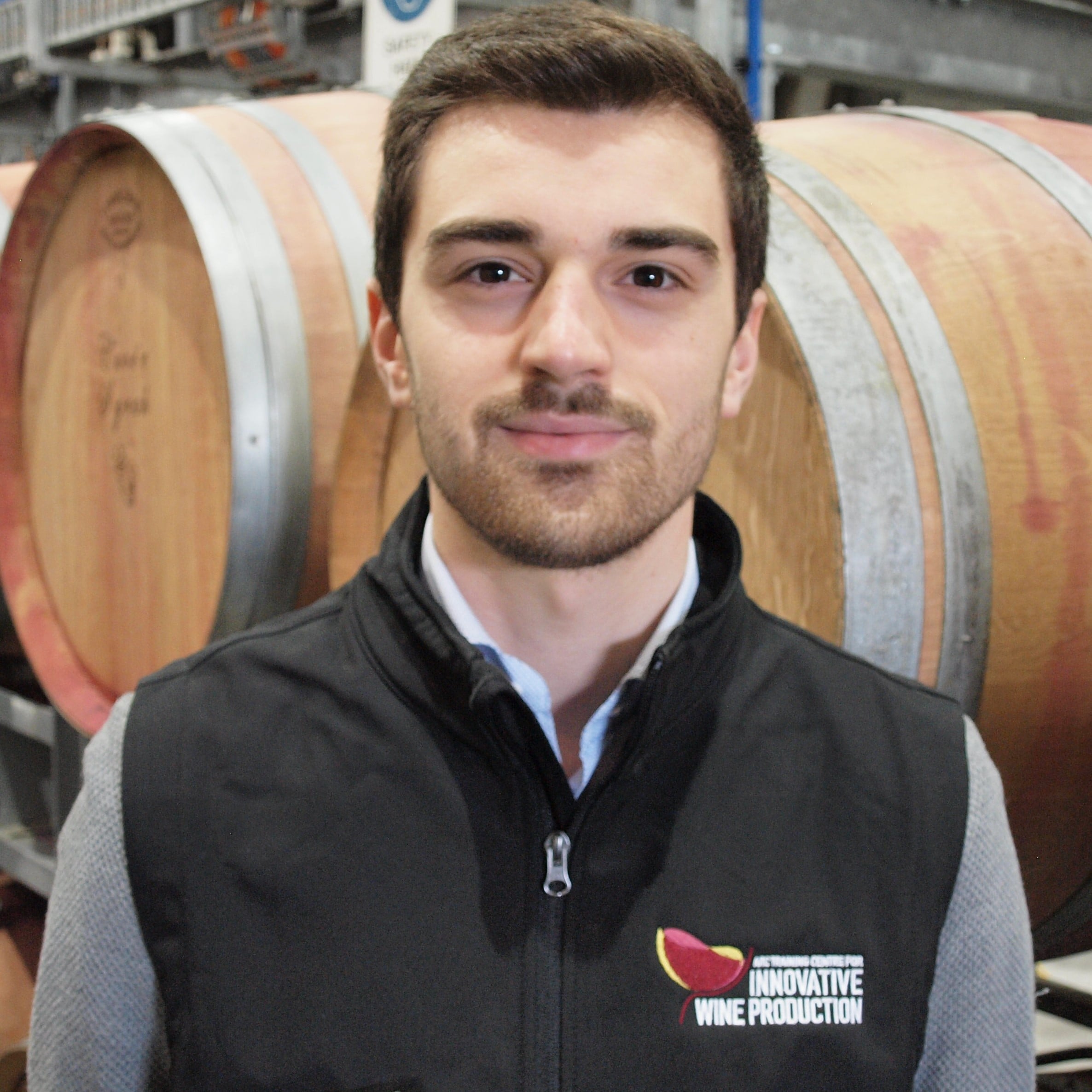 Pietro Previtali graduated with a Master’s degree in Viticulture and Oenology from the University of Turin in 2017 during which he joined the Double Degree Master Vitis Vinum at Hochschule Geisenheim University. He has worked in the wine industry in Italy, Germany and California across multiple vintages. Joining the Centre in 2018 his research seeks to further understand the relationship between sugar accumulation and the development of aroma compounds in grapes. A warming climate is leading to undesirable higher sugars and less flavour compounds at harvest. Through the combination of a detailed characterisation of aroma compounds throughout ripening and experimental trials at the vineyard scale, Pietro’s work investigates tools to uncouple the processes of sugar accumulation and aroma development and produce grapes of the targeted quality.
Pietro Previtali graduated with a Master’s degree in Viticulture and Oenology from the University of Turin in 2017 during which he joined the Double Degree Master Vitis Vinum at Hochschule Geisenheim University. He has worked in the wine industry in Italy, Germany and California across multiple vintages. Joining the Centre in 2018 his research seeks to further understand the relationship between sugar accumulation and the development of aroma compounds in grapes. A warming climate is leading to undesirable higher sugars and less flavour compounds at harvest. Through the combination of a detailed characterisation of aroma compounds throughout ripening and experimental trials at the vineyard scale, Pietro’s work investigates tools to uncouple the processes of sugar accumulation and aroma development and produce grapes of the targeted quality.
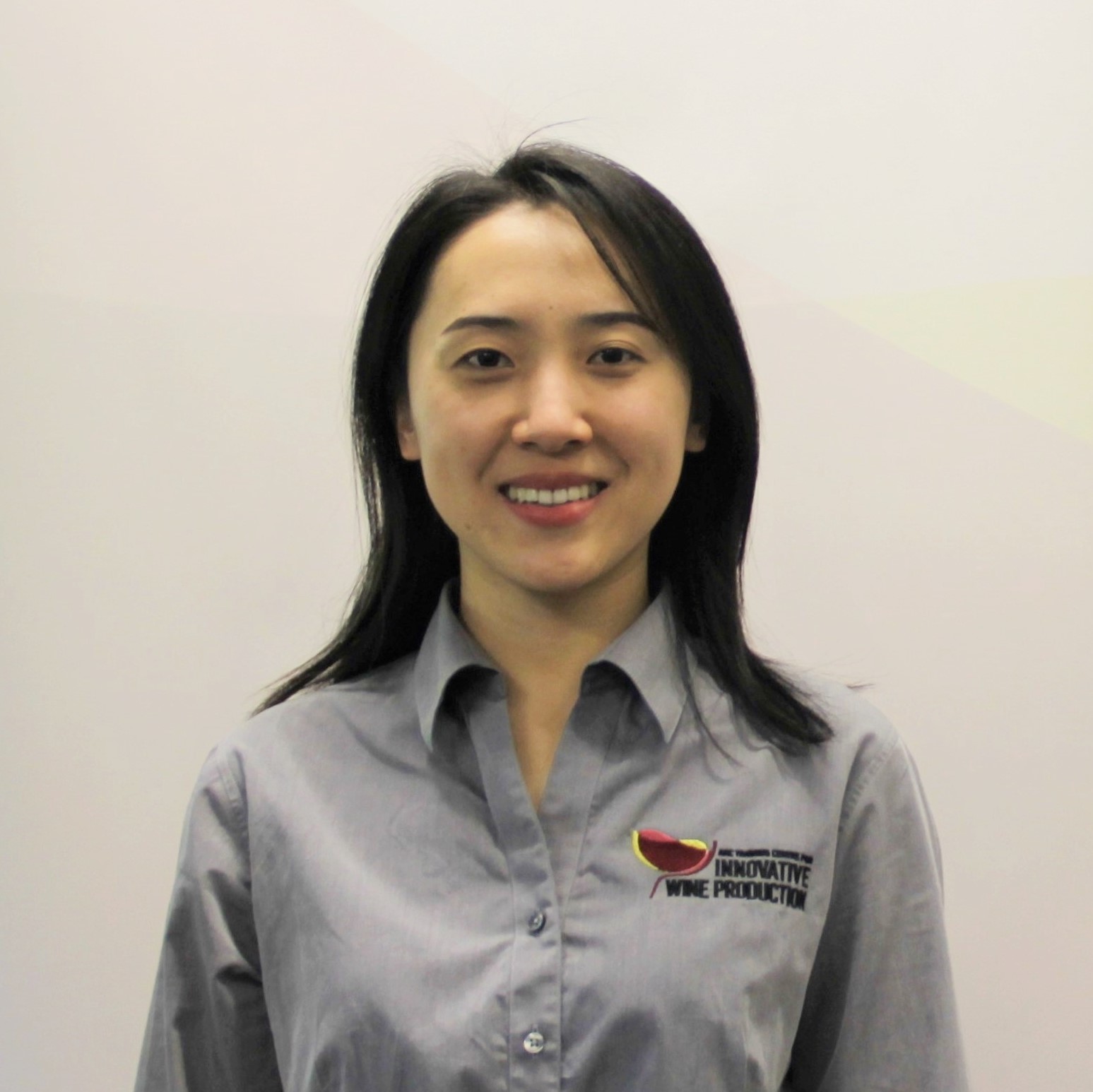 Eva Sui graduated with a Master’s degree in Viticulture and Oenology from the University of Adelaide in 2017. Prior to joining the Centre, she has worked as a research assistant on a potato vodka project at The University of Adelaide and spent the 2018 vintage at Grant Burge Wines working as a lab technician and weighbridge operator. Eva’s PhD research is investigating the use of membrane filtration technology as an alternative to bentonite (clay-based) fining to achieve white wine protein stability, while also aiming to reduce costs and improve wine quality. Eva’s presentation will discuss her most recent results on wine ultrafiltration combined with protease treatment to achieve white wine protein stabilisation.
Eva Sui graduated with a Master’s degree in Viticulture and Oenology from the University of Adelaide in 2017. Prior to joining the Centre, she has worked as a research assistant on a potato vodka project at The University of Adelaide and spent the 2018 vintage at Grant Burge Wines working as a lab technician and weighbridge operator. Eva’s PhD research is investigating the use of membrane filtration technology as an alternative to bentonite (clay-based) fining to achieve white wine protein stability, while also aiming to reduce costs and improve wine quality. Eva’s presentation will discuss her most recent results on wine ultrafiltration combined with protease treatment to achieve white wine protein stabilisation.
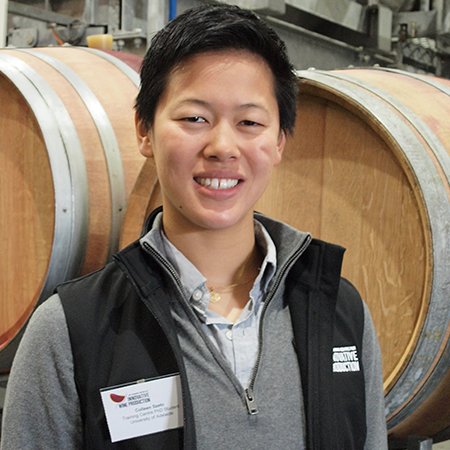 Colleen Szeto graduated with a Master’s degree in Food Science and Technology from Cornell University in 2017. She then began a PhD at the University of Adelaide (in Wine Science) focused on the topic of smoke taint; the smoky, burnt aromas/flavours and ashy aftertaste that characterise wines made from smoke-exposed grapes. This presentation will discuss current methods used in smoke taint research, some associated challenges with them, and a novel technique that may improve the accuracy and efficiency of smoke taint analysis in wine.
Colleen Szeto graduated with a Master’s degree in Food Science and Technology from Cornell University in 2017. She then began a PhD at the University of Adelaide (in Wine Science) focused on the topic of smoke taint; the smoky, burnt aromas/flavours and ashy aftertaste that characterise wines made from smoke-exposed grapes. This presentation will discuss current methods used in smoke taint research, some associated challenges with them, and a novel technique that may improve the accuracy and efficiency of smoke taint analysis in wine.
The ARC Training Centre for Innovative Wine Production is funded by the Australian Government through the Australian Research Council’s Industrial Transformation Research Program (project number IC170100008).
The Centre, administered by the University of Adelaide, has been made possible through $4.4 million in competitive funding from the ARC, with an additional $11.6 million in cash and in-kind support from our research and industry partners.

